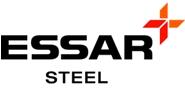Market Segment

July 24, 2015
Essar Steel Algoma Investing $240 Million in Innovations
Written by Sandy Williams
Essar Steel Algoma is investing CDN $240 million to modernize and expand its facilities to meet the global demand for advanced grades of steel.
The investment includes $60 million in financial support from the governments of Ontario and Canada. Essar Steel Algoma received a $30 million grant from Ontario’s Ministry of Northern Development and Mines and the Northern Ontario Heritage Fund Corporation and a $30 million interest free loan from Canada’s Advanced Manufacturing fund, repayable in 10 years.
The investment will be used to support technological and production innovations to meet demand for advanced grades of steel in the global market.
“I am extremely pleased to announce that after many months of work, we are providing the largest grant in decades from any level of government in the amount of $30 million to strengthen our city’s largest employer and support a $240 million capital modernization plan that will create more than 200 new jobs and serve to protect more than 2,500 direct jobs and more than 5,000 indirect jobs,” said Bryan Hayes, Member of Parliament for Sault Ste. Marie. “This massive investment will help to ensure Essar Steel Algoma remains competitive for years to come, while building industry leading capacities to produce a broader range of products as well as allowing for the increase in total steel output.”
The modernization and expansion will include construction of the No. 2 ladle metallurgy furnace, an upgrade and expansion of the Direct Strip Production Complex (DSPC)— the only facility in Canada that converts liquid steel directly into steel coils, and the automation of North America’s only combination plate and strip mill. The casting speed of the DSPC is expected to increase 30 percent to bring the steel output up to 3 million short tons per year.
Some of the planned projects will be completed within 18 months followed by total completion by 2022. The No. 6 furnace will remain down until the steel industry market improves.
Construction during the projects is expected to support 200 additional jobs.
“With today’s announcement, we are making Essar Steel Algoma more competitive in evolving markets that are demanding advanced grades of steel,” said CEO Kalyan Ghosh. “This investment will increase the productivity rate at the plant, improve our ship-on-time performance, bolster the quality and reliability of the steel coming from Sault Ste. Marie and better enable us to meet the Canadian demand for steel.”
Essar Steel Algoma Inc. is the second largest integrated steel producer in Canada and is based in Sault Ste. Marie, Ontario. The company manufactures and sells hot and cold rolled steel products. including sheet and plate, used in the automotive, light manufacturing, construction, shipbuilding, energy, mining and steel distribution industries.







